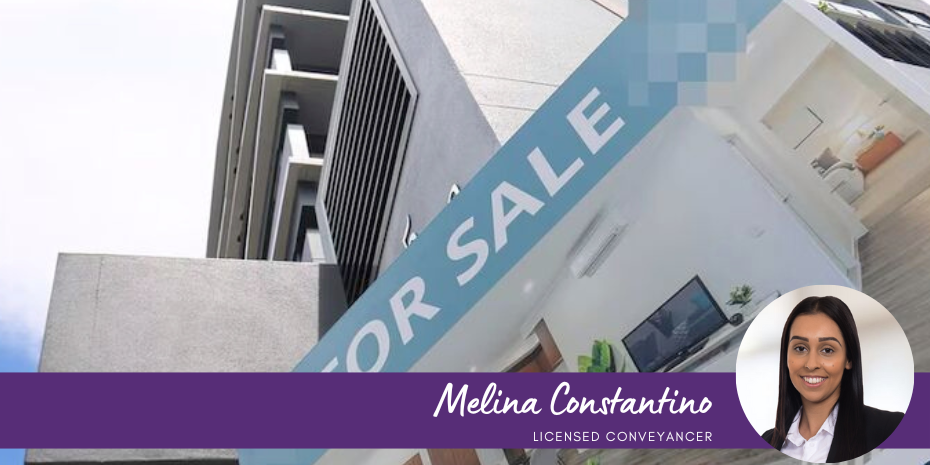KEY TAKE-OUTS:
- 11 steps setting out each stage of the buying process
- What you need to know during the buying process
- What you need to do during the buying process
If you’re wondering how to find your dream home, we’ve got you covered. We’ll walk you through the eleven steps to buying a house including finding your property, obtaining loan approval and more…
-
Obtain pre-approval
An important first step when looking to buy your dream house is to obtain pre-approval (also known as an approval in principle) from a lender. The process of obtaining pre-approval involves providing your broker or banker with information about your financial position. The pre-approval letter gives you an indication of your borrowing capacity which is essential to know before looking for a property to purchase and certainly before making any offers on properties.
-
Find your property
Now that you have your pre-approval, you can start looking for a property to purchase that is within your price range. You may begin your search online. If you find something that interests you, you can contact the Agent to organise a viewing or attend the property during the next open home. Open home dates and times are usually available on the online property advertisement.
-
Make an offer
Once you have found your dream home, you should submit an offer via the Agent. The Agent will take that offer to Vendor and come back to you to advise whether it has been accepted or rejected. If the offer is rejected, you can make counteroffers. If your offer is accepted the Agent may ask you to sign a Contract and pay a holding deposit.
-
Exchange Contracts – 0.25% may be payable by you to the agent
Once your offer has been accepted, the Agent may ask you to pay a ‘holding deposit’ and sign a Contract. The holding deposit is calculated by determining 0.25% of the agreed purchase price and is payable to the Agent’s trust account. Where the Agent does not hold a trust account, it’s paid to the Vendors Licensed Conveyancer or Solicitors trust account. Once you have paid the deposit and both you and the Vendor have signed the Contract, the Agent can perform an ‘exchange of Contracts’. This is where they are compared and then dated. Once dated, the Contract becomes binding on the Vendor and they cannot accept any other offers. You, however, have the benefit of a cooling-off period and during that time you can rescind (cancel and get out of) the Contract. If you rescind the Contract, you forfeit the 0.25% deposit i.e. this is non-refundable.
-
Review the Contract and obtain inspection reports
The cooling-off period is the time when the Purchaser conducts their due diligence. This includes obtaining inspection reports such as pest and building reports or a strata report. It is also the time to obtain legal advice on the Contract terms and if necessary, negotiate those terms.
-
Receive unconditional loan approval
Prior to the expiration of the cooling-off period, it is important that you hold an unconditional loan approval (also known as formal loan approval). The process of progressing from pre-approval to unconditional approval may include the bank obtaining a valuation of the property. Once you hold an unconditional approval, it means the bank has no more conditions that need to be met in order to secure the finance, it’s secured and safe to proceed to lock into the purchase of the property.
-
Pay the balance of the agreed deposit to the agent
Prior to the expiration of the cooling-off period, it is a condition of the Contract that you pay the balance of the deposit to the deposit holder. This amount would usually be 10% of the price less any holding deposit you have already paid. There are exceptions to this which included instances where you have negotiated a lessor deposit in which case that amount must be paid prior to the expiration of the cooling-off period. The deposit holder is usually the Real Estate Agent. If there is no Real Estate Agent, the deposit holder is usually the Vendor’s legal representative.
-
Your Contract becomes unconditional and binding
Once the cooling-off period ends, the Contracts become ‘unconditional’. This is when you become locked into the purchase of the property and bound by the Contract terms.
-
Mortgage documents are issued by your bank for you to sign and return
After you receive unconditional loan approval, the bank will issue your loan documents for your to review, sign and return. Sometimes they will be electronically issued for you to e-sign and in other instances, they will be printed and posted to you for you to sign and post back. Your broker or banker may meet with you to review and sign the loan documents. In some instances, you may be required by the bank to obtain legal advice on the mortgage documents
-
Pay Stamp Duty (if applicable)
Transfer duty (formerly called Stamp Duty) is payable on the earlier of settlement and 3 months after the Contract date. As such, if you have entered into a Contract to purchase a property with say a standard 42-day completion period, duty will be paid on settlement. If you have entered into a Contract to purchase say a block of unregistered land which doesn’t register for 12 months, transfer duty is payable within 3 months of the Contract date. If duty is not paid within 3 months of the Contract date, Revenue NSW will charge you interest on the amount due until it is paid.
The amount of duty payable depends on the value of the property you are purchasing.
If you are a First Home Buyer who is exempt from duty or who has opted in for the Property Tax, payment of duty does not apply.
If you are an owner occupier who has purchased an off-the-plan property and meets the eligibility criteria, you may be entitled to a 12-month deferral of the payment of duty i.e. duty is not due until the earlier of settlement and 15 months after the Contract date.
-
Settlement! The balance of the purchase price is paid to the vendor and the property is yours!
The majority of settlements now take place electronically. You may have heard the term ‘PEXA’ used. This is one of the electronic platforms where settlements take place. A time and date are set for settlement. On settlement, you pay the balance of the purchase price to the Vendor. Once settlement has taken place, the title is transferred to you, and you become the registered owner. Put simply, the property is yours. You can then collect the keys and start moving in!
ABOUT MELINA COSTANTINO

Melina joined the Coutts team in 2010 working as a Licenced Conveyancer within our Property & Conveyancing team, based out of our Campbelltown office. Her commitment to client services saw her progress further and into the role of a Senior Licensed Conveyancer in July 2022.
She graduated with a distinction in the Advanced Diploma of Conveyancing and is accredited with the Australian Institute of Conveyancers NSW.
For further information please don’t hesitate to contact:
Melina Costantino
Senior Licensed Conveyancer & JP
info@couttslegal.com.au
1300 268 887
This blog is merely general and non-specific information on the subject matter and is not and should not be considered or relied on as legal advice. Coutts is not responsible for any cost, expense, loss or liability whatsoever in relation to this blog, including all or any reliance on this blog or use or application of this blog by you.



